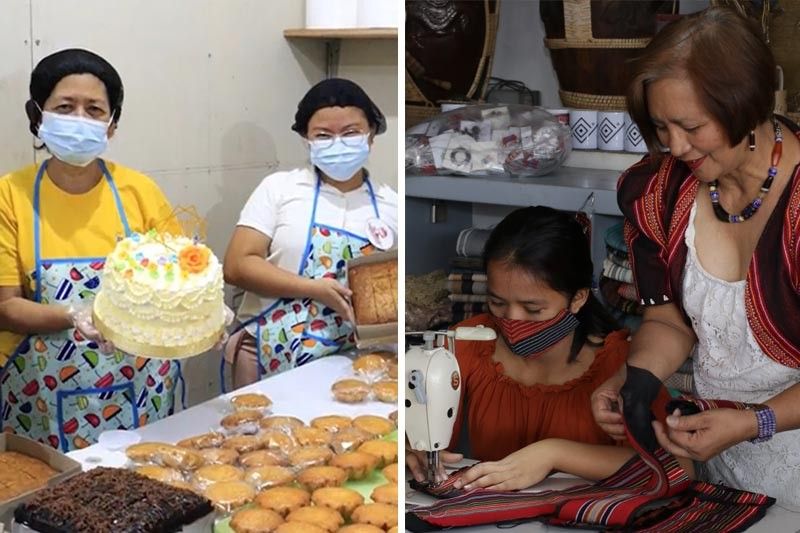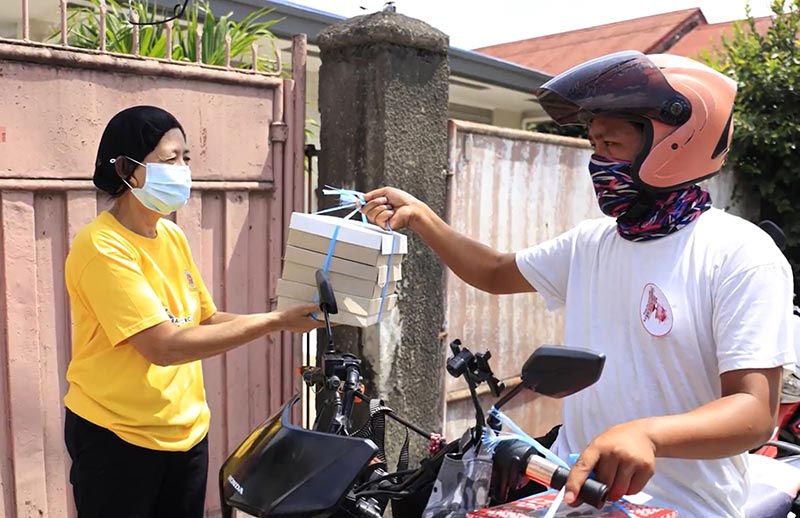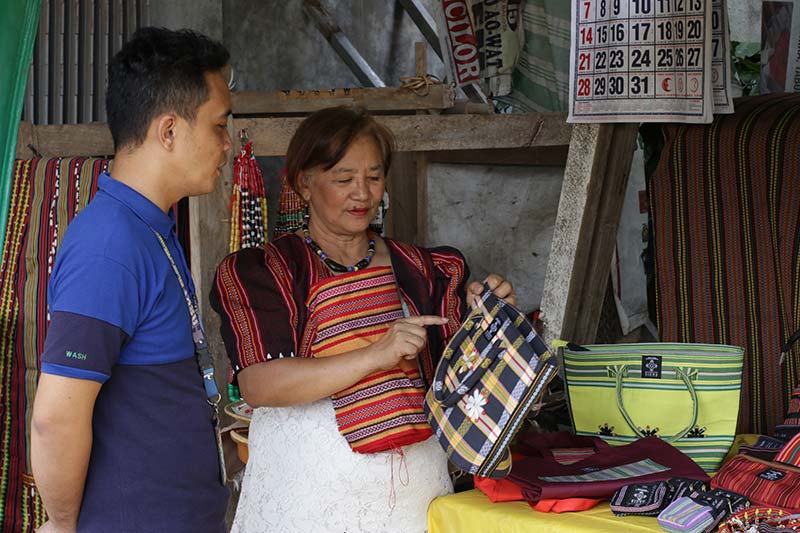Two entrepreneurs face the challenge of running their business during the pandemic, but still find it in their hearts to help others

Microentrepreneurship awards program recognizes COVID-19 response initiatives of local businesses
MANILA, Philippines — As the world shut down at the start of the global pandemic, two female entrepreneurs rose up to the challenge and fought to do business while leading their own COVID-19 response initiatives.
The Citi Microentrepreneurship Awards (CMA), which has recognized hundreds of entrepreneurs since 2002, named Josephine De Lara of Cebu and Florence Ao-wat of Kalinga as COVID-19 Response Champion special awardees for achieving this extraordinary feat.
The CMA program is a signature initiative of the Citi Foundation and highlights the efforts of partners like the Bangko Sentral ng Pilipinas (BSP), Citi Philippines and the Microfinance Council of the Philippines Inc. (MCPI) to strengthen microfinance and enterprise development, and financial inclusion in the country.
Josephine De Lara: The pandemic was a chance to help others

Lucille’s Cakes and Pastries is well-known in Cebu City. De Lara, the entrepreneur behind it, started the business in 2009. She liked cooking native delicacies as a hobby, until she decided to offer her specialty—puto cheese—not just to her neighbors but also to schools, banks and hospitals. De Lara eventually resigned from her job as a clerk and ran her business full-time.
She used her separation pay to buy ingredients and baking equipment. In 2013, while waiting during one of her deliveries, she chanced upon a leaflet of RAFI Micro-finance Inc. (RMF). De Lara made an initial loan of P5,000 in that same year, which she used to purchase additional equipment such as ovens and mixers, allowing her to cater to an increasing volume of orders. To this day, she maintains a 100% loan repayment rate with RMF.
Things were going well, with De Lara earning enough to send her daughter and nieces to school, and compensate her workers well. That is, until the pandemic happened. But instead of being discouraged, De Lara looked for more opportunities to keep her business afloat while at the same time help others who were also struggling.
“During the pandemic, we gave free snacks to frontliners, garbage collectors, and quarantine volunteers,” De Lara said. The situation also gave her the opportunity to open her business to other channels as she developed her network of online resellers.
In December 2020, De Lara made 200 cakes per week. She was recognized as RMF’s Top Seller of the Month in the Tindahan ni Nanay Facebook page. The number of online resellers for Lucille’s Cakes and Pastries grew to 200, who all enjoy discounts and incentives when they meet their sales quota.
Running a business may have been difficult, but De Lara was determined to beat the odds. “Business is really difficult nowadays, especially if it’s not food-related. Look for a business that copes with the times,” she advises other entrepreneurs.
Florence Ao-wat: Continuous learning can sustain a business through difficult times

Ao-wat’s Kalinga Indigenous Weavers Association (KINWA) Etnika Handicrafts was launched in 2006, and has since revived the art of weaving in her Kalinga community, especially among the younger generations. “Our business started from our passion of weaving,” she shares.
A business course graduate, Ao-wat started her handicrafts business with only P2,500 as capital. What she lacked in capital at the beginning, she made up for in the knowledge and skills she gained—and shared with the community. In time, Ao-wat was able to put up a training center for weavers.
Ao-wat enrolled in courses at the Department of Trade and Industry, and also joined trade fairs organized by the government agency. With the help of the Department of Education, she was able to encourage students to do their on-the-job training at her store. Persons with disabilities were also hired to work for her business.
To augment her business capital, Ao-wat availed of her first loan in 2018 from Alalay Sa Kaunlaran Microfinance Social Development Inc.-Tabuk Branch (ASKI Tabuk). With an initial loan of P50,000, Ao-wat invested in weaving equipment and raw materials. Ao-wat has made four loans—and repaid all of them—since then.
Ao-wat’s success enabled her to support 12 students with college scholarships. More importantly, she breathed new life into the Kalinga weaving industry, and helped highlight the craftsmanship of local weavers.
Unfortunately, the pandemic in 2020 affected business operations, forcing Ao-wat to downsize her workforce. Still, this did not stop her from doing what she could to help frontliners, who received free woven face masks and scrub caps from KINWA. As she continued research and development, these products were eventually added to KINWA’s product line, along with tribal costumes and bags.
“We have to attend trainings given by different agencies for different learnings, insights, and expertise about the business,” Ao-wat says. She also adds this piece of advice to other entrepreneurs: “Money begets money. Don’t forget to pay off your loans.”
Recognition and support for entrepreneurs amid a pandemic
In the CMA’s 18th year, Ao-wat and De Lara, together with two other microentrepreneurs, Ivy Millare and Dominador Vergara Jr., were recognized as COVID Response Champions, receiving P100,000 each as prize money.
CMA also recognized regional awardees Renalyn Brondial, Medelina Cansancio, Luz Bangos and Rosalyn Espenorio; Youth Microentrepreneur of the Year Joymar Olarte; and CMA National Winner Luzviminda Sunit.
The winners were chosen by the National Selection Committee led by BSP Governor Benjamin Diokno and Citi Philippines Chief Executive Officer Aftab Ahmed. Other members include Tourism Secretary Bernadette Romulo-Puyat, Trade and Industry Secretary Ramon Lopez, Ayala Corporation President and CEO Fernando Zobel de Ayala, Go Negosyo Founder and RFM Corporation President and CEO Jose Ma. Concepcion III, Samahan ng mga Pilipina para sa Reporma at Kaunlaran (SPARK!) Philippines President Imelda Nicolas, JG Summit Holdings president Lance Gokongwei, ANC News Anchor and Writer Salve Duplito, GMA7 Network CEO and Chairman Felipe Gozon, Inquirer Group of Companies CEO Sandy Prieto-Romualdez, UP Diliman Chancellor Dr. Fidel Nemenzo, and SM Investments Corporation Vice Chairperson Teresita Sy-Coson.
- Latest






























